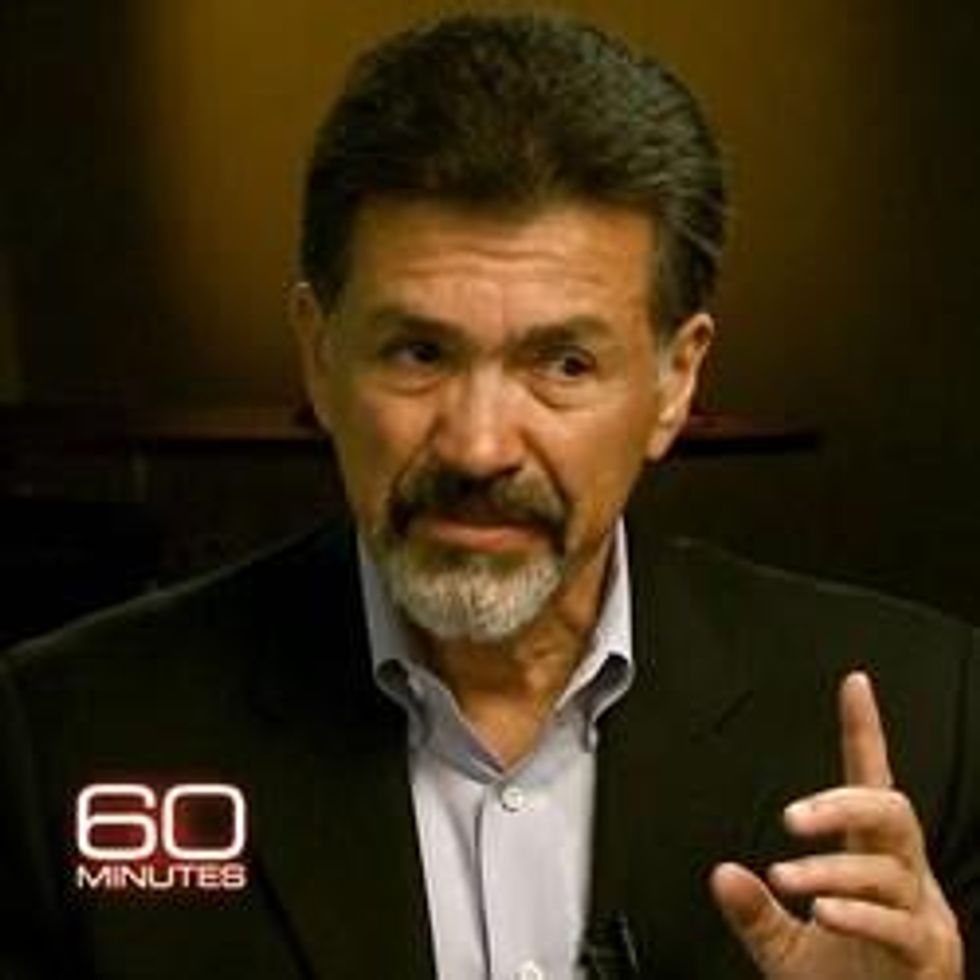"The dark side -- that's what we do."
Jose Rodriguez, former head of the CIA's clandestine service, used these words in a "60 Minutes" interview last Sunday to defend the use of water-boarding and other "harsh interrogation" techniques on suspected terrorists. His self-assurance recalls the observation of General Taguba, the lead investigator into the abuses at Abu Ghraib, that "the only question that remains to be answered is whether those who ordered the use of torture will be held to account." Rodriguez's new book, Harsh Measures is an undisguised justification of CIA torture.
Interviewer Leslie Stahl offered only mild push-back. The broadcast exemplifies the normalization of the monstrous, the transmutation of the radical and stunning reality of U.S. torture into a reasonable topic of "debate." There was no mention of the absolute, no-exceptions-permitted prohibition of torture under the Torture Convention and the Geneva Conventions; no mention of the U.S. Anti-Torture Statute or War Crimes Act; no acknowledgment that the so-called "torture memos," written in secret by the Bush administration and immediately rescinded by the
Obama administration, were intended (in the words of a CIA official) as a "golden shield" against criminal prosecution.
Rodriguez claimed that 92 CIA videos of "harsh interrogation" methods were destroyed in order to protect interrogators from Al Qaeda reprisals, but the U.S. government can and regularly does hide the identity of Americans when releasing documents to the public. Missing from the "60 Minutes" exchange was any mention that the CIA was under court order to preserve the tapes, and that their destruction constituted a possible obstruction of justice. The entire discussion unfolded without any mention of the law.
Since Stahl omitted another critical question, I will ask it here: Why now? Why a CIA authorized book justifying CIA torture? There are two possible explanations. First, the Senate Select Committee on Intelligence (SSCI) will soon release its long-awaited report on CIA torture. The report is expected to find no convincing evidence that harsh interrogation techniques led to any breakthroughs in the fight against terrorism. We should not be surprised if the CIA might want to preempt this inconvenient finding. How many will heed a report released by Senate Democrats compared to the high-profile interview and book tour of a tough CIA veteran pushing the romance of "dark-side" fixes to America's security problems?
Second, Romney will soon be asked to clarify his pro-"enhanced interrogation" position, stated most clearly in the 2007-08 Republican primary. Will Romney stick by his defense of the Bush-Cheney program? The Rodriguez-CIA initiative might be designed to provide Romney with more "authoritative" support for his position.
Three responses are essential. First, the SSCI report should be completed and released soon -- with minimal redaction. While the report may sadly fail to address the crucial legal and moral issues at stake, I expect it will demonstrate both that claims of effectiveness are unsupported and that the damage to our nation's reputation and national security has been severe. The report needs to receive full and sustained attention from the media.
Second, President Obama should avoid the politics of amnesia and speak out more forcefully against torture. His relative silence has ceded the initiative to defenders of "enhanced interrogation" methods. While Obama did issue a critical statement last November after several Republican presidential candidates endorsed coercive interrogations in a televised debate, he needs to do far more.
Finally, the vitality of our democratic republic requires all people of good conscience to condemn torture, recommit our nation to the respect of human rights, and call on our government to return to the rule of law by holding accountable those who committed war crimes. Just as Rodriguez should be more directly challenged for his defense of war crimes, the president should be equally challenged for his failure to live up to the rule of law, particularly his unwillingness to hold accountable those who ordered and administered torture in our name.




